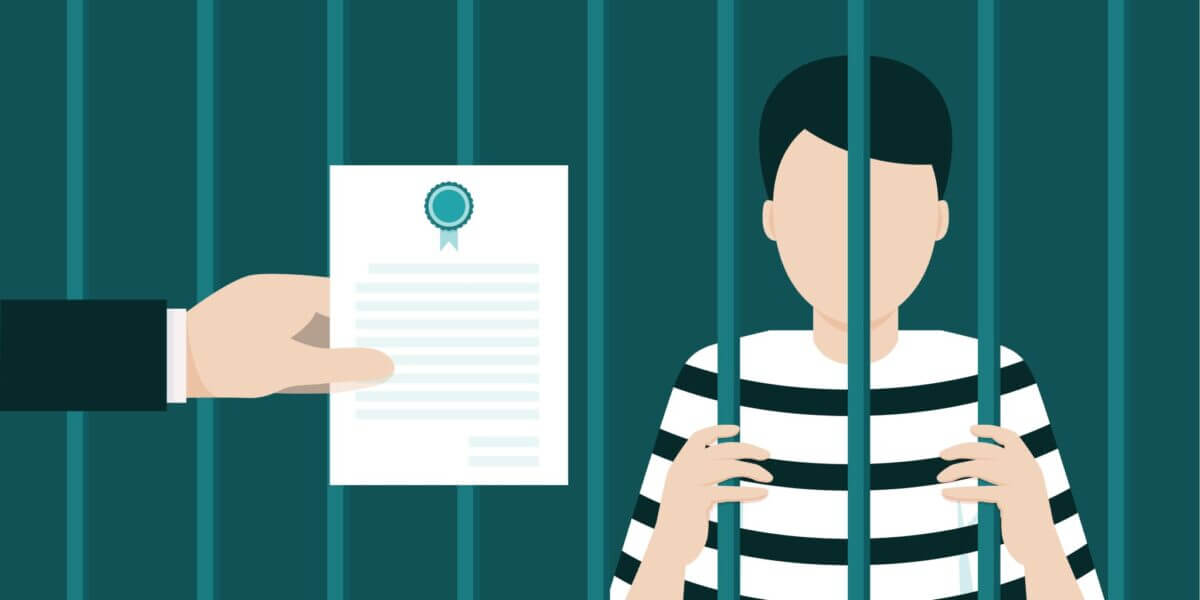6 Steps to a Successful Dallas County Bail Bond
There are a lot of bail bond companies in Dallas County, but Delta Bail Bonds is among the longest-lasting. That’s because we are a family-owned business with a stellar reputation for helping people get their loved ones out of jail. That’s a reputation built over the last 30+ years. Here’s a step-by-step guide on how to use our services to bail someone out if you’re in Dallas County.
1. Give us a call: the first step is to reach out to Delta Bail Bonds by giving us a call at 972-231-2828. We have agents available 24/7 who can help you through the process. Most arrests do not occur during “normal business hours.” Our responsiveness to after-hours calls is second to none.
2. Tell us the situation: once you’re in touch with one of our agents, they will need to know some basics about the situation. This includes the full name and birthdate of the person you’re looking to bail out, as well as where they’re being held. We’ll share some specific Dallas County jail information in a bit. From there, the bail agent will also need your contact information so they can keep you updated on the status of your case.
3. Get pre-qualified: in order to get started, you’ll need to fill out a short questionnaire so the bail agent can pre-qualify you for financing. Don’t worry, this doesn’t mean you have to have stellar credit. We take all forms of payment, and the fee is nominal (10%), keeping you from being responsible for the full bail amount.
4. Choose a payment plan: can’t afford everything at once? Once you’ve been pre-qualified, you will have the option to choose a payment plan that fits your budget. Delta Bail Bonds offers multiple financing options so you can find one that works for you.
5. Sign the paperwork: if everything looks good and you decide to move forward, the next step is signing some paperwork—this is just standard procedure in order to get started with the bail bond process, and you can find exact copies of the information we ask for on our website so you’ll know what to expect going in.
6. Sit back and relax: well, relatively speaking. We know these are high-stress situations, but they are so much more difficult when you don’t have an ally in the justice system ready to prioritize your case. Once you’ve taken care of all the necessary steps, all that’s left to do is sit back and let us take care of everything else. One of our experienced agents will post the bond and get your loved one released from jail as soon as possible— typically within 2-4 hours, though that can vary depending on the detention center and situation.
Active Dallas County Jails and Detention Centers
Lew Sterrett Justice Center
The Lew Sterrett Justice Center is home to the three main detention centers. These include the North Tower, West Tower, and Suzanne Lee Kays Detention facilities, all located at 111 West Commerce Street in Dallas, Texas.
Named for Lew Sterrett, who served as Dallas County Judge for more than three decades, retiring from service in 1979, the Tower facilities began construction in 1983 with updates being made in 1993, and 1995, and finished construction in 2008. Today, it has the capacity to house more than 7,000 inmates and is overseen by 900 employees. They operate around the clock (24/7/365).
North Tower Detention Facility
The North Tower features 188 single cells. It’s capable of housing 3,292 of the 7,100 inmates, or around one-third of the population. It’s also where you’ll find 350 of the county’s 900 detention center employees.
West Tower Detention Facility
The West Tower features 25 additional single cells with 132 tanks and an inmate capacity of 1,530. It’s considered a mental housing facility that serves (or serves as):
- Trustee
- An infirmary
- Individuals with lower bunk medical restrictions
- Subjects in need of close behavioral observation
- Suicidal subjects
- HIV-positive arrestees
- Accused child sex offenders
- Crisis stabilization
It is where the County provides protective custody, administrative custody, psychological assessments, and assistance for those suffering from substance abuse.
Suzanne Lee Kays Detention Facility
Also known as the South Tower, this facility was named in honor of Suzanne Lee Kays in 1995. Deputy Kays was killed in the line of duty just six days after graduating from the Academy in 1989.
The Kays Detention Facility is the newest addition, which finished construction in 2008. It rounds out County’s 7,100-capacity with space for 2,304 inmates.
Henry Wade Juvenile Justice Center
This facility is used to house juvenile offenders. It sits at 2600 Lone Star Drive in Dallas. It employs a staff of 1,000 and houses 7,000 youth inmates between the ages of 10 and 17. You can find out more about how the center operates here.
MORE HELPFUL INFORMATION
- The Dallas County Sheriff’s website provides helpful resources for those trying to help someone who has been arrested, including an inmate lookup system and information on how to deposit money for an inmate.
- The Inmate Information page gives loved ones an at-a-glance breakdown that helps them take the necessary actions.
- To schedule a video visitation with an inmate, visit https://securustech.net/.
- The inmate lookup system will help you collect the necessary information to apply for a bail bond. You can use one of four options to deposit money into an inmate’s account: in person, through www.cashpaytoday.com, www.inmatedeposits.com, or by calling 1-866-345-1884
- There are three main detention centers in Dallas County: North Tower, West Tower, and Suzanne Lee Kays Detention facilities; the George Allen Jail and Henry Wade Juvenile Justice Center are also inactive facilities in Dallas County.






